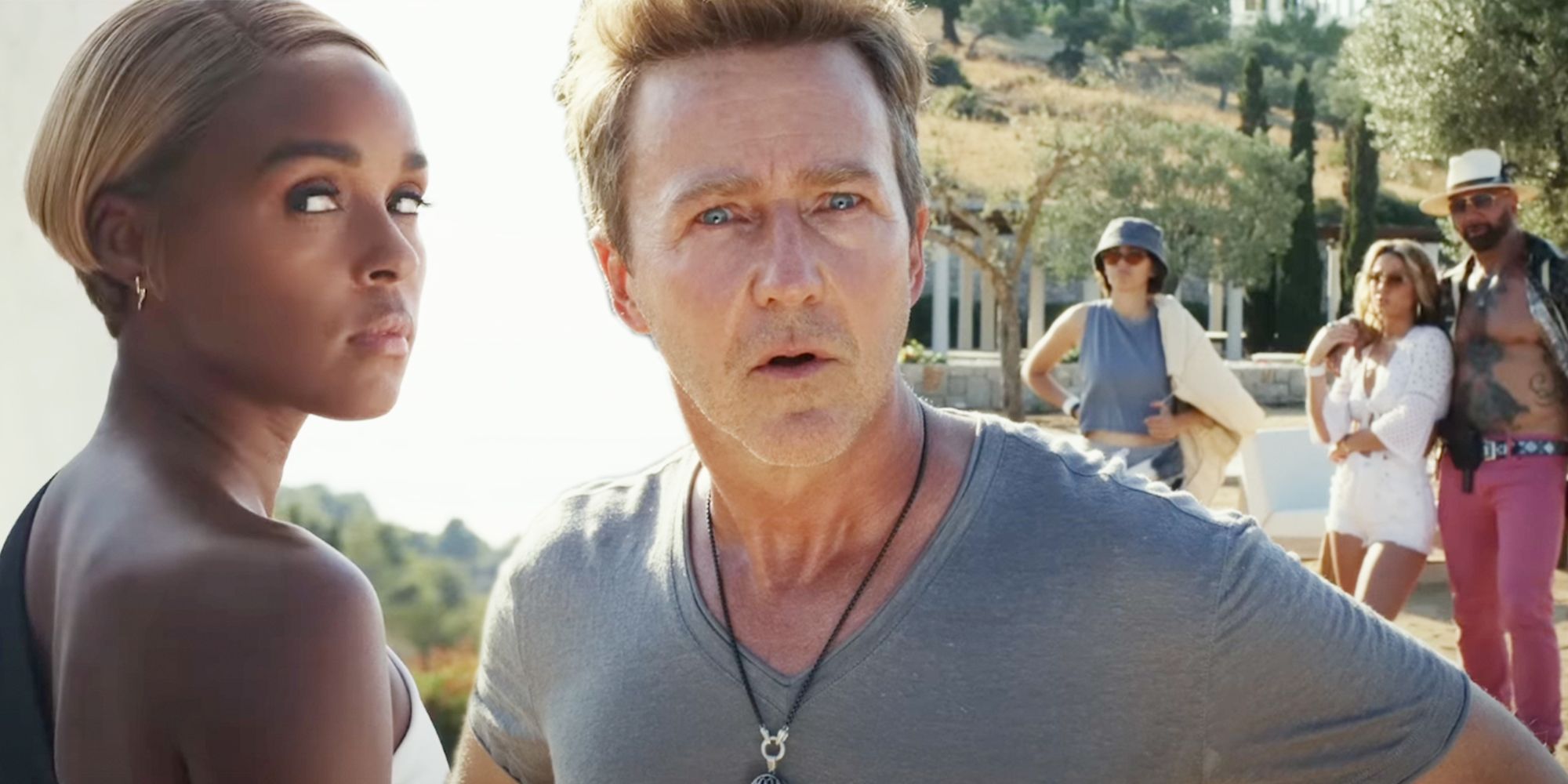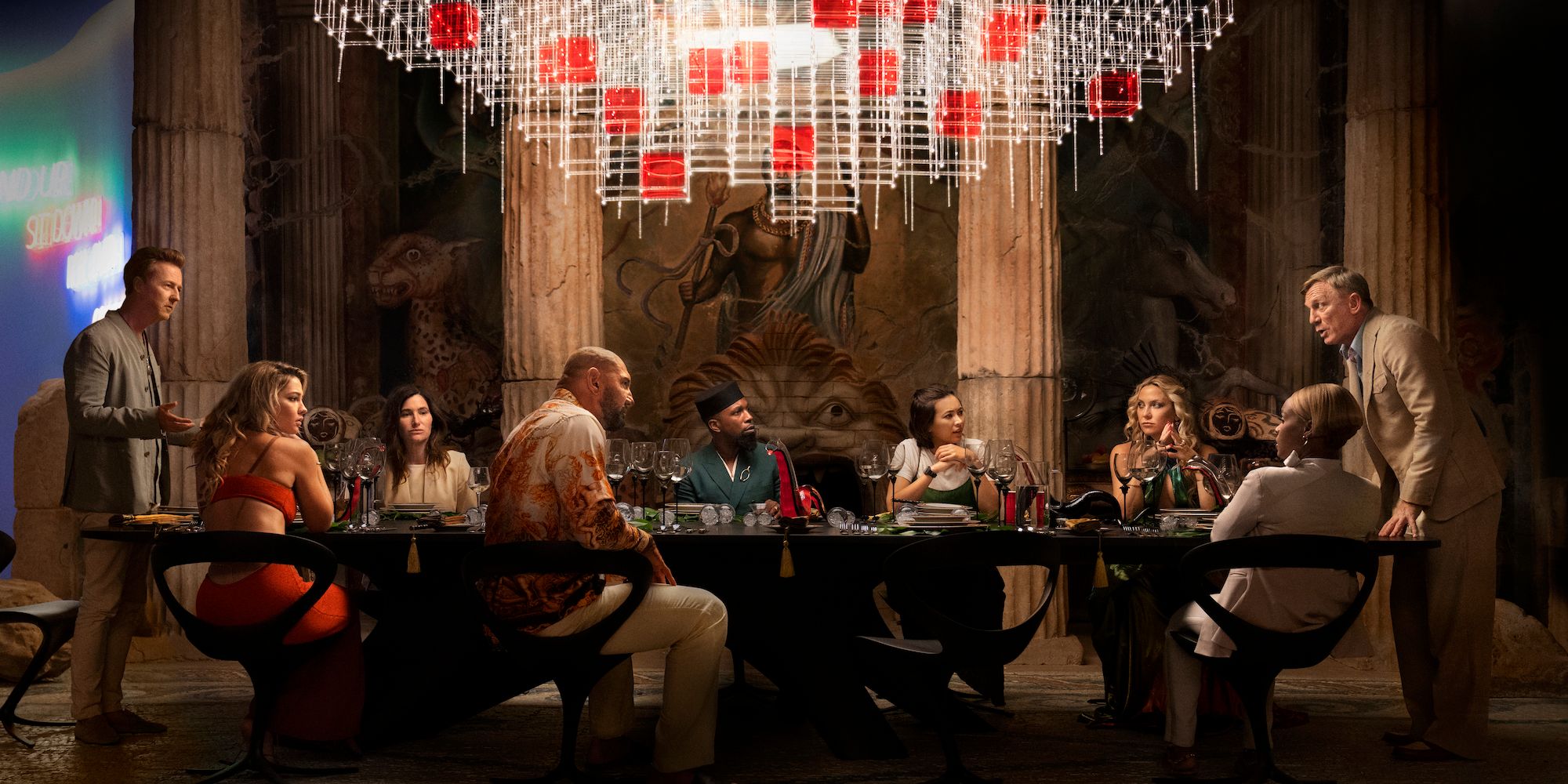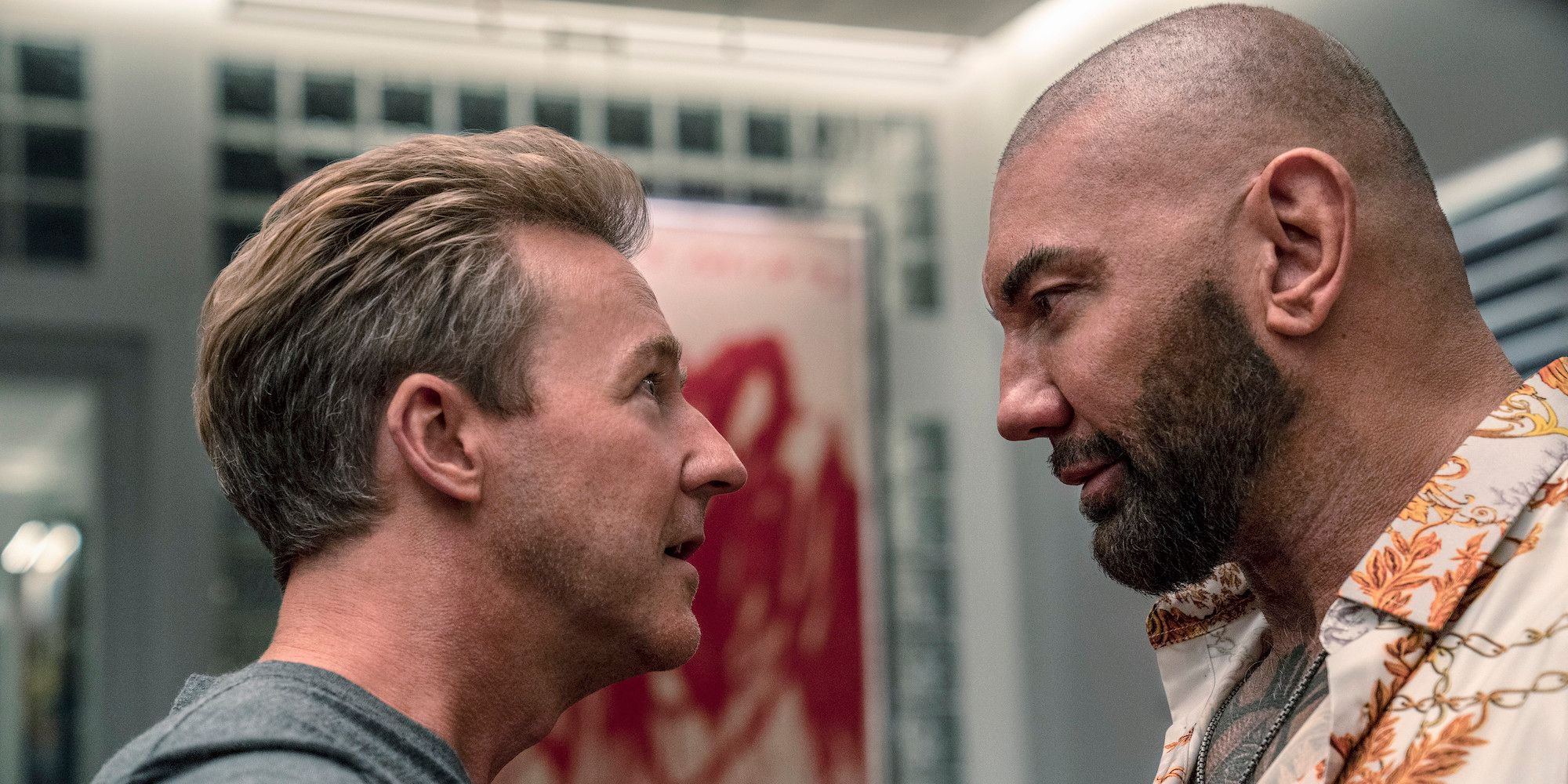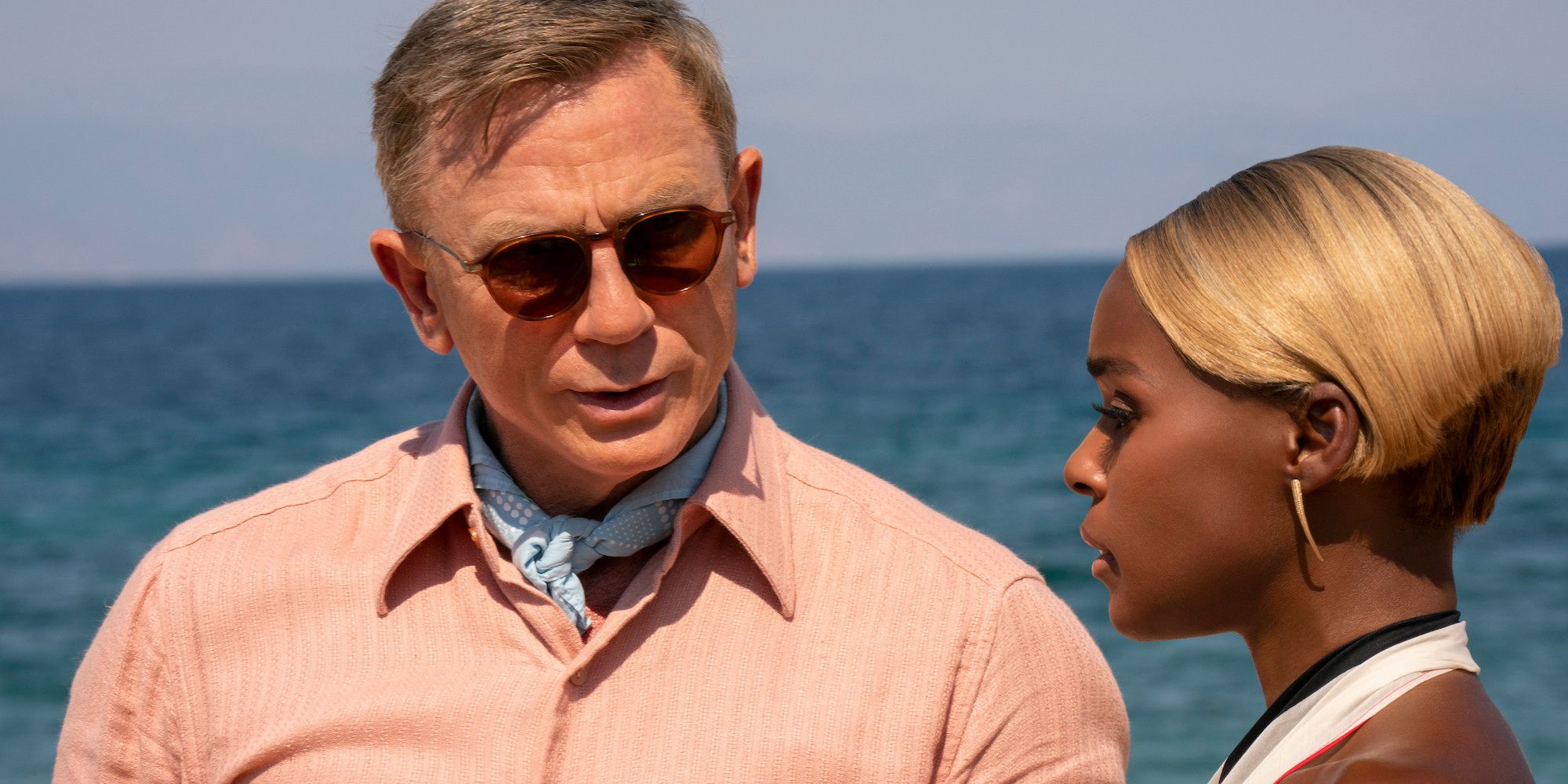Glass Onion: A Knives Out Mystery is a more-than-fitting return by Rian Johnson to the world of murder mysteries. With more twists and turns than its predecessor, a colorful new location, and top-notch humor and dialogue, Glass Onion: A Knives Out Mystery meets, and perhaps even surpasses, the high bar set by Knives Out in 2019. Although Daniel Craig is the only returning cast member from the "first" film, there are no weak links in the sprawling ensemble which includes Janelle Monáe, Jessica Henwick, Leslie Odom Jr., and Ed Norton.
Also returning after working on Knives Out, however, is Nathan Johnson, who is director Rian Johnson's cousin and lifelong collaborator. Just as Glass Onion: A Knives Out Mystery is a new story in a new location, Nathan Johnson's music explores new instrumentation, themes, and concepts while staying true to the spirit established in the original film. With the exception of Star Wars: Episode VIII - The Last Jedi, Nathan Johnson has scored all of his cousin's major films, making his music an integral part of the Rian Johnson film DNA.
Nathan Johnson spoke with Screen Rant about writing a new string quartet piece, his musical inspirations, and his collaboration with his cousin.
Nathan Johnson on Glass Onion: A Knives Out Mystery
Screen Rant: This isn't a sequel, but it's certainly in the world of Knives Out. When you started working on the score, what did you want to keep, musically or spiritually, from the first film? What did you leave behind?
Nathan Johnson: That's a great question, and I think it's really astute, because you kind of hit the nail on the head in the way that we think about these. In our minds, it's not a sequel. But obviously Blanc is the thru-line, so Blanc's motifs kind of weave in with the score. In my mind, it's definitely playing in the same sandbox that we established with Knives Out. I wrote a new string quartet for this one, and that was the way we opened Knives Out and welcomed everyone into what this world would be.
I think the specific answer has to do with precision. Even though we're using a big orchestra, Rian and I love film scores that are precise, where you can hear all the melodies, and you can hear every section. This sort of harkens back to Bernard Herrmann scores, and old scores that really have that fingerprint, that personality, where you can kind of hear the bows scraping along the strings. In my mind I think, as opposed to atmospheric or wall of sound, the Knives Out music world is all about precision.
Did you have specific films that you looked at for inspiration when it came to the score?
Nathan Johnson: Our touchpoint was Nino Rota, and specifically his score for Death on the Nile. Thank God that Ryan loves melodic, lyrical scores. In a way, those have almost sort of fallen out of vogue in the last ten, twenty years, but these are the scores that we grew up loving. I'm such a sucker for melody, so I feel also really, really grateful that we are getting to be bold in our choices with this world, and getting to lean into that lush Old World romanticism. But [I'm] also getting to write a score where the different characters have very distinct themes, and that's such a fun thing. When I'm scoring a film, often I'll write lyrics, because I feel like if a melody is singable - if I can sing it in lyrics... it's sort of my process. [For] a lot of my film scores, the main themes have lyrics that I use as a writing exercise as I'm developing them.
Can I ask what the lyrics are for the theme of this movie?
Nathan Johnson: I will never tell you that! But specifically [with] Miles' theme - I won't tell you what the lyrics are, but I kind of cracked his theme by writing as him singing to the Mona Lisa, and how he places that, in a way, above people.
That's awesome. And you had mentioned the string quartet piece as well. To me, it felt like because you're taking this thing that can work as a string quartet and then putting an orchestra around it, you're mirroring the layers of the story. Is that how you approached the score, or am I reading into it?
Nathan Johnson: That makes me sound very smart and very scheming to do this ahead of time. I think the honest answer is, for that scene in particular, Rian temped that scene with my quartet from the first one. I usually hate when a director temps something with my music, because it's like, "Okay, I already wrote that," but in this case, I got really excited. I was like, "Oh, we're going to get to write another quartet."
To circle back around to your question; in that case, it was really about what the scene needed. There's this impishness to it, but it needs all the power of the orchestra as it gets bigger and bigger. If there's anything that marks the way that Rian and I work together, it is that that is at the top of our pyramid; what does the scene need, and what does the story need? And we're both happy to break rules. It's helpful to kind of have a sandbox, but we're both happy to break the rules if it's what the scene needs to accomplish the story. It does no good to get caught up in pedantic little rules that you've made for yourself if you're not serving the god of story.
I really love that there's a harpsichord in this score, because I can't think of a film score in recent memory that features a harpsichord. What made you want to bring that in?
Nathan Johnson: That was a conversation with Rian. I think in Rian's mind, harpsichord sort of defines this suspense mystery sound that's in these movies that we grew up with. The fun thing about that is, I was talking to somebody who was saying, "Oh, the harpsichord from Knives Out," but there's no harpsichord in Knives Out, even though [since it's] in a manor house, that almost feels like the movie that wants harpsichord. But one of the things I like about Rian, and our collaborations together, is [that] often his instinct is to zig when you expect him to zag. This is this big, opulent movie on a Grecian Island and [in] a very modern house, and this felt like the right one to actually go even more precise and use the harpsichord to bring us into the world.
Since you've worked together so much, at this point in your collaboration, are you talking about the movies with him as he's writing them? How closely together do you two work?
Nathan Johnson: Pretty closely. It's sort of my greatest pleasure, because he's telling me ideas as he's writing them, and then the day he sends me the scripts, it feels like Christmas morning. At that point, I'm not thinking about the music at all. I'm just giddy because I get to read one of my favorite writers, and I get to experience this new world. But that's the luxury of having this type of relationship and getting to come in so early. It's not like, "Quick, quick, hurry, hurry."
With these movies, I take a small writing rig onto location, and I'm watching the performances, and I'm watching the tone of the movie develop at the same time as I'm starting to sketch out ideas for the themes. It feels almost like a gardening process, where you're getting to plant seeds, see which ones feel like they're growing, and then water those. I realize that it's luxurious, but it's very rewarding.
This is unrelated to Knives Out, but I saw that you've directed a few music videos. You've worked with Son Lux, for example, who are great. What's it like for you to explore that side of things, and take on other projects outside of composing?
Nathan Johnson: I really love it. It itches that storytelling nerve. It's that same itch, but from a completely different perspective. But also, at a meta level, I don't really think about them all that differently. Like I was talking about, it's like, "Okay, how do we tell this story?" Whether it's through a music video, or using music to supplement a film. It kind of weirdly feels like the same world.
Part of that, too, is [that] Rian and I grew up together making movies since we were like 10. At that point, it wasn't like I was composing the music for them, we were just kind of all doing everything together. I loved that, and I love working with actors, so it's fun. It's a fun other sandbox to get to play in.
Now that you just said that, did you have music conversations with any of the actors while you were on location and they were shooting?
Nathan Johnson: Not very specifically. Honestly, we would play Mafia games on the weekend. It felt very unspecific, but it felt like a family and a summer camp. Getting to watch the performances that they laid down was kind of mind-blowing, but beyond that, getting to see what kind of people they were was awesome, because they were so warm and legitimately enjoyed hanging out together. To tie it all back to how we made movies growing up, it felt like that, but at a weird "pinch me" level. It's like making a movie with your family and your friends, but on the grandest scale. All of that really comes from Rian. He sets that tone, and really creates a family vibe all the way through the movie.
Okay, last question. You've done almost all of Rian's movies...
Nathan Johnson: [Laughs] I can't imagine where this question is going.
And then he gets this massive opportunity to do Star Wars with John Williams, who is arguably the best-known film composer of all time, returning to do the music. It's amazing, but much did you want Williams to retire just before that movie?
Nathan Johnson: Can you imagine what would have happened if I was the first person to do something that wasn't [John Williams]? People would have hated me! Rian and I have told this story a lot, but when we were making movies as a kid, we basically scored all of them with a Hook CD. It felt like John Williams scored our childhoods, and thankfully I got to be there for the recording session, and Rian and I both were just like giddy kids getting to watch a hero of ours do his thing and bring Rian's movie to life. If you're going to have to bow out for anyone, it feels like an honor to let that person be the Maestro himself.
At the end of that project, Rian had John Williams sign two things. He had him sign a poster for himself, and then that Christmas, he had me unwrap a present, and it was the Hook vinyl, and John Williams had inscribed it to me and signed it. Rian is obviously a gifted writer, and in life, you see his thematic arcs and bringing things back around to where they start.
About Glass Onion: A Knives Out Mystery
Detective Benoit Blanc returns in Glass Onion: A Knives Out Mystery, a new whodunit from the mind of Rian Johnson. Glass Onion: A Knives Out Mystery swaps out its location from New England for a private island in Greece, and its cast from one star-studded ensemble for another. Alongside the return of Daniel Craig, Glass Onion: A Knives Out Mystery features Edward Norton, Janelle Monáe, Kathryn Hahn, Leslie Odom Jr. Kate Hudson, Dave Bautista, Jessica Henwick, and Madelyn Cline.
Check out our Glass Onion interview with director Rian Johnson as well.
Glass Onion: A Knives Out Mystery will be available to stream on Netflix on December 23.




